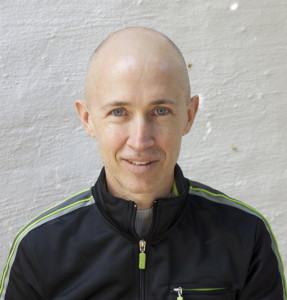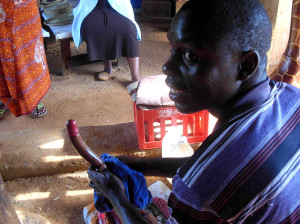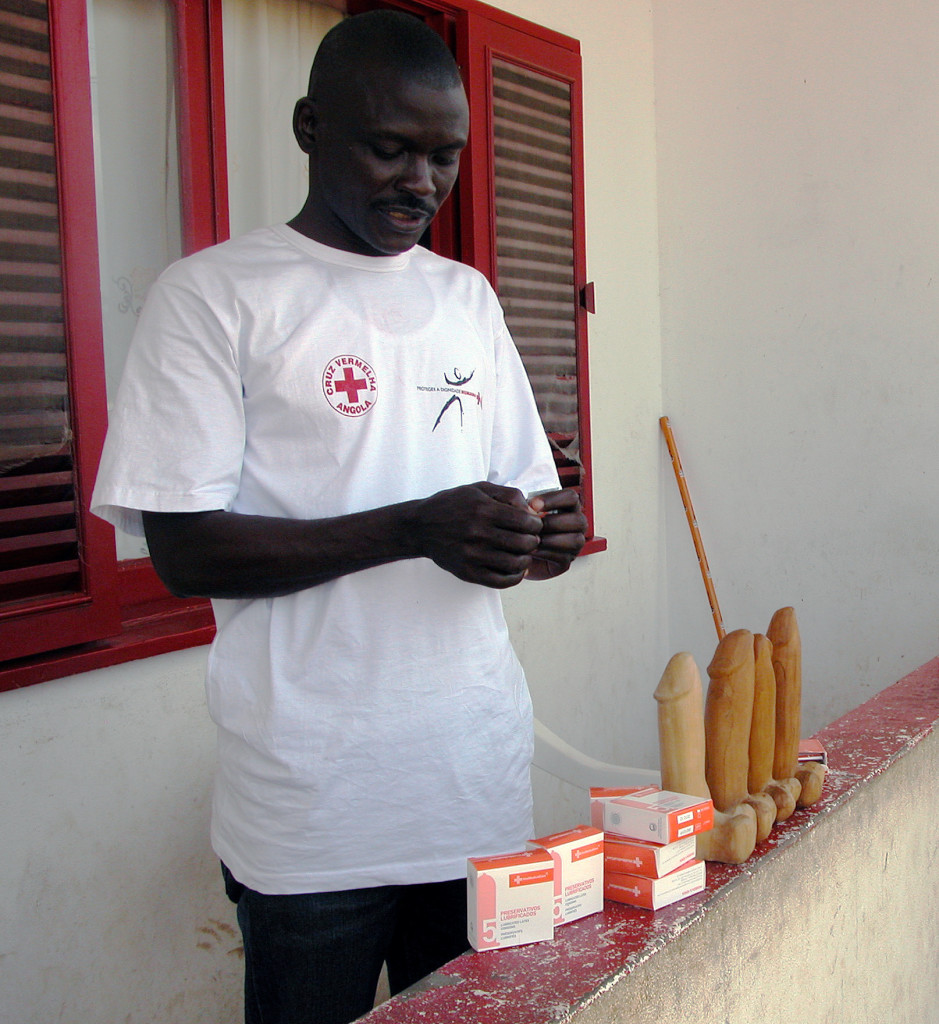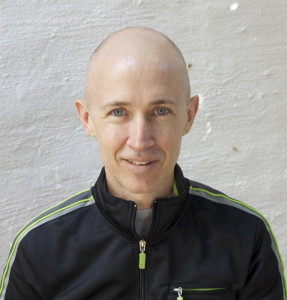The intriguingly titled RESPECT study (Rewarding Sexually Transmitted Infection [...]]]>
The intriguingly titled RESPECT study (Rewarding Sexually Transmitted Infection Prevention and Control in Tanzania) has been described in a World Bank working paper as creating significant reduction in STIs in one of the intervention groups.
Participants received US$20 every four months if they tested negative for STIs.

Do conditional cash transfers to change sexual behaviour and prevent HIV work, or do they actually commodify sex and health, presuming that young people will not adopt healthy behaviour unless they get an economic reward?
Credit: Mercedes Sayagues
The effects were stronger among lower socioeconomic and “higher risk” groups, that is, those who had an STI at the start of the research. The cash transfer had an equal protective effect for males and females at the end of the study. However, a survey of participants one year later showed a sustained effect among males only.
Some interesting aspects of the findings:
– The researchers wondered if the cash transfers for females worked in the short term not because they changed something intrinsic to the person, but because they protected against transactional sex on an immediate day to day basis
– Self reported changes in sexual behaviour were not consistent with STI prevalence, suggesting self report is unreliable in measuring change
– STI treatment-seeking behaviours did not change, suggesting that money influences some aspects of behaviour but not others.
Complex dynamics at play
All of this starts to paint a complex and interesting picture. The researchers suggest a number of overlapping factors could be at play.
“Price effects” essentially influence a participant to weigh the “price” of risky sex as they could lose cash if they tested STI positive.
But this can itself be affected by the fact that getting an STI from unprotected sex is not automatic; a lot depends on the risk profile of one’s sexual partners. As a result, this “price” calculation is an ongoing balancing act, with unpredictable outcomes.
“Income effects”, a weighing up of benefit as opposed to cost, might account for some females seeing the cash transfers as offsetting monies and goods they might get from transactional sex.
But, since more money could also make males more likely to have sex (money as sexual pulling power), this “income effect” is not inevitable.
The researchers wondered if some participants could make the necessary calculations to weigh up risks and benefits. In some cases, participants overestimated HIV prevalence and possible financial loss, and so their behavioural adjustments were not always congruent with risk.
It seemed that participants were also more likely to consider short term (losing the money) rather than long term (being HIV positive) costs, suggesting perhaps that cash transfers work for some people because they are “present-focused”.
Paying for sex, paying not to have sex
On the other hand, if behaviour change is to be sustained, how do we help people think more long term?
A meta-analysis found that conditional cash transfers suggest promise but context, purpose and population were key to effectiveness. Most of the studies were with young people. This fact, along with the ideas above, raises many interesting questions.
In focusing on sexual risk, STIs and HIV, are we unconsciously reinforcing a bleak and pessimistic view of young people, only seeing them as “risk units”, needing extrinsic reinforcement to be safe, as opposed to helping them develop internally generated – and consistent – agency, which is supported by the context they live in and is “wired” into them for life?
Is it respectful to young people to challenge transactional sex by saying “paying for sex is wrong but we will pay you not to have sex”?
Are we not cynically re-commodifying sex, and what are the unintended consequences of this?
Where is there space in this conversation for ideas around desire, pleasure, intimacy and love? Is this not an excessively instrumental view of human behaviour, devoid of meaning, connection and community?
Or can it be argued that these are irrelevant, or less urgent, in the middle of an epidemic?
I worry that we are “atomising” young people; losing the opportunity, firstly, to ask more interesting and complex questions about networks of positive social and sexual capital; and secondly, to find ways to make sexual and reproductive health a natural and pro-social part of who we are, not just a conditioned response to an external stimulus.
 Pierre Brouard, director of the Centre for the Study of AIDS at the University of Pretoria, South Africa, is a clinical psychologist interested in sexualities, gender, human rights, and finding just the right word to grace a sentence, convey empathy or complete a crossword.
Pierre Brouard, director of the Centre for the Study of AIDS at the University of Pretoria, South Africa, is a clinical psychologist interested in sexualities, gender, human rights, and finding just the right word to grace a sentence, convey empathy or complete a crossword.
With evidence that circumcision can reduce HIV risks [...]]]>
With evidence that circumcision can reduce HIV risks for men engaged in vaginal sex by up to 60%, the drive for voluntary medical male circumcision (VMMC) in adult men has taken on a new urgency. New ethical challenges are arising, beyond voluntarism and informed consent.

Circumcision is more than surgery – it is a personal, social and political marker. Our blogger unpacks meanings and impact of medical male circumcision campaigns in Africa.
How do we respect the principle of beneficence, ensuring procedures and programmes are good, not just for the person, but for society as a whole?
Non-malificence – the commitment to “first do no harm” – is crucial, and we should avoid unintentional consequences. The principle of justice should also be observed, with a focus on equity and fairness, especially when we allocate scarce resources.
Circumcision is more than just a biomedical procedure – it is a personal, social and political marker. It connotes difference or similarity. It can signify belonging to a particular religion, ethnicity, cultural group or power bloc in a country or region.
History is full of examples of circumcision being used as a tool of inclusion, exclusion and even marking for killing in times of conflict. Have we anticipated the impact of changes in identity that circumcision can signify?
Not just a cut
Not long ago I accompanied a young friend to a VMMC site in a hospital west of Pretoria, South Africa. I noticed that all the supporters of the young men in the ward (fathers, uncles, and friends) as well as the nursing staff, imbued the changed (circumcised) status of the young men with meanings around sexual prowess, transformation and rites of passage into proper masculine adulthood, away from maternal influences. For me, this suggests that VMMC is not a neutral intervention.
Current VMMC drives have failed to adequately engage with masculinity, tradition and traditional circumcision, possibly blurring intentions and outcomes.
Take the case of Swaziland, not traditionally a circumcising country. It had set ambitious targets for VMMC for HIV prevention but, by 2011, the country had only met about 12% of its target.
Against this backdrop, researcher Alfred Khehla Adams explored meanings of circumcision for Swazi men in the Kwaluseni district of Manzini.

Like the Zulus, Swazi people do not practice traditional male circumcision. Research shows that Swazi men fear medical circumcision will undermine their manhood, their constructed masculinity, beyond the foreskin. Credit: Mercedes Sayagues
Men feared reduced sexual pleasure and possible adverse effects, like wounds and swelling, and said the procedure threatened their notions of manhood.
Where manhood was defined as “someone who has a wife and children” and therefore is “sexually functional”, medical circumcision introduced a threat to this.
In South Africa, traditional circumcision (with its rituals, messages and meanings) is regarded as a non-negotiable rite of passage into acceptable masculinity for some groups, perhaps precisely because there is some risk. Mutilation, amputation and death do occur.
Here, VMMC has been met with some suspicion, a reluctance to accept a clinic circumcision as an acceptable test of manhood, among concerns that “culture” is being diluted.
Given that a clinic circumcision would maximise the HIV benefits of the cutting, because sufficient foreskin is removed, VMMC campaigns have to manage this tension between a desirable health outcome (medical circumcision) and an acceptable social identity (traditional circumcision).
Objectification of black bodies
Is VMMC a form of social engineering? Because some men refuse to use a condom, believing they have sufficient HIV protection from circumcision, some women have reported more difficult condom negotiations.
On a large scale, VMMC could thus impact on gender relations, especially in contexts where gender violence and rigid masculinities dominate.
Does mass circumcision of men represent a form of biomedical pessimism, seeing men as subjects, not citizens, incapable of agency and autonomy? This pessimism says men can’t change and won’t change, and therefore we need to intervene on their behalf.
And finally, does mass circumcision of African men represent a revitalisation of the “colonial project” that views black bodies and black sexualities in a particular way?
In South Africa, the apartheid state and parastatals such as the mines constructed medical machinery which viewed male bodies as objects to be medically managed and controlled, while at the same time the reproductive rights of black South Africans were limited through contraceptive programmes.
It would be naive, I believe, to ignore this history of objectification, and broader ethical debates, as donor money is used to save African men from themselves.
 Pierre Brouard, director of the Centre for the Study of AIDS at the University of Pretoria, South Africa, is a clinical psychologist interested in sexualities, gender, human rights, and finding just the right word to grace a sentence, convey empathy or complete a crossword.
Pierre Brouard, director of the Centre for the Study of AIDS at the University of Pretoria, South Africa, is a clinical psychologist interested in sexualities, gender, human rights, and finding just the right word to grace a sentence, convey empathy or complete a crossword.
For sero-discordant couples, it can bring a sense of ease about possible HIV transmission during sex. And this may be the [...]]]>
For sero-discordant couples, it can bring a sense of ease about possible HIV transmission during sex. And this may be the kind of use of PrEP society feels most comfortable with.
But a recent WHO recommendation that PrEP should be part of the standard armoury of prevention technologies for gay men and men who have sex with men has raised a few eyebrows.
Does PrEP, as some have argued, simply enable a commitment-free sexual licence which might have accounted for the early HIV epidemics?

ARVs as HIV prevention: freedom from fear, freedom from condoms or license for promiscuity? Credit: Mercedes Sayagues
PrEP discourses weave two interesting themes together: the medicalization of HIV prevention (where sex becomes driven by tablet regimens) and moral panics around sexual freedom (where sex for pleasure, unshackled from procreation, relationships and commitments, has free reign).
While no one would deny that medicines have brought great good to society – though there is a conversation to be had about who gets access to medicines, as the recent Ebola crisis has shown – there are questions to be asked about the impact of new medical technologies on our understanding of, and interest in, factors which drive human (sexual) behaviour.
Pleasure and protection
In the early responses to HIV, when treatments were not available, gay and other communities found ways to support each other and collectively change behaviour.
Political movements like ACT UP arose out of global indifference to the rising tide of deaths of those on the margins, and a new politics of sex and sexuality was also enabled: gay communities and activists were defiant, and adamant, that pleasure was to be kept firmly on the sexual agenda as much as protection.
With the rise of ARV treatments, some of these conversations around pleasure moved to the backburner.
And now that mass PrEP is around the corner, other questions about sexual networks, sexual desire, sexual pleasure, and sexual sub-cultures lose their urgency, and perhaps their funding.
While it can be argued that these questions become less relevant, indulgent even, what can be gleaned from our understanding of them is immeasurable.
Unpacking that almost magical interplay between individual agency, social influences and structural forces would benefit our understanding of other social challenges: crime, gender violence and racism come to mind, just for starters.
So popping pills becomes a panacea, but it may blunt our understanding of social glue and social decay.
Sex without fear
The moral anxieties around PrEP have swirled around for a while now: it promotes casual sex, it removes responsibility, it might encourage people to eschew condoms.
In fact, as Aidsmap reported from Melbourne, many PrEP study participants still opted to use condoms, finding that the addition of PrEP took away a lot of their fear and anxiety.
“It’s not like I’m going to go out and being like, ‘Ooh, bareback now. I’m protected, It’s fine.’ …I just don’t have the overwhelming stress and fear and guilt that I would have had” said Seth, aged 29.
One gay man, whose father had died of an HIV-related illness, said he’d decided to start PrEP when a relationship with another HIV negative man became condomless and non-monogamous “and I wanted a sex life free from fear”. PrEP gave him the same sense of control as ART, he argued.
The words condomless and non-monogamous may strike fear into the heart of many an HIV educator, but they bring together fascinating ideas around PrEP: medicines change behaviour in unpredictable ways, and pleasure and adventure remain central to human sexuality.
The need for social science to understand this is crucial – when science meets the bedroom, the outcome is never inevitable.
Note on blog title: “When science meets the bedroom” is the title of a symposium on PrEP at the recent Melbourne AIDS Conference.
Pierre Brouard, director of the Centre for the Study of AIDS at the University of Pretoria, South Africa, is a clinical psychologist interested in sexualities, gender, human rights, and finding just the right word to grace a sentence, convey empathy or complete a crossword.
]]>Language has always mattered in the AIDS epidemic. From the outset, stigma was fuelled by blaming phrases like “gay plague” or “African disease”. As early as 1987, sociologist Paula Treichler called AIDS an epidemic of signification, noting [...]]]>
Language has always mattered in the AIDS epidemic. From the outset, stigma was fuelled by blaming phrases like “gay plague” or “African disease”. As early as 1987, sociologist Paula Treichler called AIDS an epidemic of signification, noting that “the very nature of AIDS is constructed though language and in particular through the discourses of medicine and science.”
An example of this is the recent rallying cry “getting to zero”, that is, zero new HIV infections, zero HIV-related discrimination and zero AIDS-related deaths.
At first glance, this seems to be an exciting challenge and possibly a useful indicator of success. But is it possible that these goals are setting us up to fail and reflect a misunderstanding of such a complex epidemic as AIDS?
The emphatic repetition of the word “zero” sounds good on the political podium – but what might it mean at those various moments of infection, discrimination and death?
Let’s think about each zero in turn.
For zero new infections to occur we would need to live in an almost perfect world: where every person living with HIV would know their status, use protection whenever they had sex, be on anti-retroviral treatment with 100 percent adherence (to invoke the “treatment as prevention” effect) and always disclose their HIV status to their partner(s).
Young people would not have sex until they met their life partner, no one would have sex for money, no one would get drunk at a party and fall into bed with a complete stranger, and no sero-discordant couple would succumb to the temptation “just this time” to abandon a condom to make a baby. In this world there would be no infidelity, no rape, no lies, and certainly no deviation from the “test, treat and adhere” script.
Zero HIV-related discrimination sounds wonderful too. But is this realistic? To date no major parliamentarian in my own country, South Africa, has been open about their HIV status and I struggle to think of more than one or two major public figures or celebrities who are openly HIV positive. Racism, xenophobia, homophobia and sexism are alive and well, despite our progressive constitution: perhaps the tendency to discriminate may be wired into our social and political DNA.
Zero AIDS-related deaths is the most urgent aspect of the zero mantra, and closest to the core business of biomedicine. We know antiretroviral treatment (ART) works, in most cases. But to reach a point of zero deaths we would need everyone on treatment to adhere all the time. Sadly, the realities of living with a chronic disease seem to militate against this, given the impact of personal, social and economic factors on adherence.
And for people to be on treatment they first have to access the drugs: in South Africa, supply chain and other administrative challenges have meant that, despite having the largest ARV programme in the world, or because of it, we fail to deliver treatment on time to all who need it.
So the zero rhetoric is problematic. Targets are important, but there is a danger that the zero language closes the door on nuance and complexity, risking blame and othering of those who fail to comply with well-intended public health injunctions.
By setting individuals and systems up to fail, we do them and ourselves a disservice, and we become intolerant towards human frailty and blind towards structural challenges.
We can learn from critiques of the “zero tolerance” rhetoric around crime. In an important essay, Vijay Nagaraj asks whether the use of zero tolerance language in the public discourse around violence against women makes for good populist politics but does not translate into progressive and well-informed public policy.
In the aftermath of highly publicised gang rapes and murders in India, she argues, there has been tighter social control over women and girls in the name of security and “prevention”.
So instead of trying to “get to zero”, we need to aim for a deeper understanding of the social and structural underpinnings of AIDS, and question the unintended consequences of our programmatic language.
Pierre Brouard, director of the Centre for the Study of AIDS at the University of Pretoria, South Africa, is a clinical psychologist interested in sexualities, gender, human rights, and finding just the right word to grace a sentence, convey empathy or complete a crossword.
]]>
As a psychologist working in an HIV programme at the University of Pretoria, South Africa, I have [...]]]>
As a psychologist working in an HIV programme at the University of Pretoria, South Africa, I have counselled many students about sex over the years. Many of these students lack confidence, comfort and literacy around sex that empowers rather than embarrasses them.

While a university cannot be all things to all people, it can promote the idea that everyone has a right to sex that is healthy and mutually enjoyable. Credit: Rebekah Funk/IPS
Despite living in a country where an early sexual debut is not unusual, where sexual assault and rape are endemic, and where surveys show university students are having sex and sometimes contracting HIV, we seem to think that if we control, manage and inhibit the sexuality of young people, we will somehow keep them from harm until that magical day when they meet their similarly abstinent and “pure” life partner, releasing them into each other’s arms for a life of wonderful, safe, healthy and faithful sex.
This ambivalence about young people’s sexuality is evident in the response of the state. Yes, we have, on paper at least, an excellent Life Orientation programme in schools.
But while there are pockets of excellence and dedication, often the work is done by teachers who are not well motivated or trained, who themselves struggle with their own relationships and sexuality, and who are often quite conservative about sexual norms and different sexual orientations.
Coexisting paradigms
This awkwardness about youth sexuality carries over into many university spaces and programmes where different paradigms co-exist, each with its own challenges and possibilities.
Many campus health programmes, not surprisingly, adopt a public health approach: seeing students as rational actors who, if given the correct health information and warnings about disease, HIV and pregnancy, will simply choose not to have sex, or if they must, will use condoms and contraceptives all the time.
While students may be given tests and access to contraception, and sometimes even the morning after pill, a sense of a finger wagging goes along with these technologies.
Yet the language of disease, risk and infection runs counter to the experience of desire, pleasure, transgression and power, which drives many sexual encounters.
The public health approach often fails to factor in these elements – less amenable to rational thinking – and glosses over the relationality of sex; meaning that we make decisions, some conscious, some less so, based on the dynamics of the moment and the person we are with.
Another paradigm is the idea that the university “stands in” for the parents of the student, setting boundaries and limits to sexual expression, perhaps even invoking the language of morality, to define the kind of sexual citizen the student is expected to be: preferably abstinent, hopefully faithful and definitely heterosexual.
Evidence for this: constrictions on sexual expression in residences, attitudes towards pregnancy and abortion, the privilege given to religious voices on some campuses, and the use of parental titles in residences (house mothers and fathers).
Paradoxically, the free availability of alcohol and inadequate approaches to understanding and managing drug use, complicate this picture, placing more pressure on universities to control sex and sexual expression, and act as parent figures.
Sexual competence
The most hopeful approach, in my view, is the sexual competence one developed by British sociologist, Julia Hirst.
Sexual competence means being able to negotiate sex that is safe (both in terms of disease and in terms of the physical space it occurs in) and mutual, by people with a positive sense of their sexual selves and identities.
It does not assume heterosexuality or privilege vaginal penetration, recognising that we all need a repertoire of ways to give and receive pleasure.
To be sexually competent means having a confident and fluent language for sex; it values personal feelings of control in decision making. It can also mean being fully comfortable in saying no to sex, not from a position of fear and shame, but from a place of recognition of what one really wants.
In my years as a psychologist, I have worked with many adults who have unhappy and complicated sex lives. Young people need not follow this path.
While a university cannot be all things to all people, it can promote the idea that we all have a right to great sex which is equal and not exploitative, which is healthy and mutually enjoyable.
To achieve this, universities need to get real and be open to new conversations with and about their students’ sexual cultures, identities and practices.
Pierre Brouard, director of the Centre for the Study of AIDS at the University of Pretoria, South Africa, is a clinical psychologist interested in sexualities, gender, human rights, and finding just the right word to grace a sentence, convey empathy or complete a crossword.
]]>Subsequently, Jackline’s father [...]]]>
Subsequently, Jackline’s father refused to pay her university fees, arguing she was “a moving corpse”. And when Jackline disclosed to her boyfriend, he ended their relationship. Read her story here.
Is this an extreme experience, offset by stories of acceptance and openness?
Psychologist Marnie Vujovic and HIV practitioner Saranne Meyersfeld have worked with young people from urban and rural South Africa, who acquired HIV perinatally, and are now entering secondary school and adolescence.
They found that not only did these young people sometimes face stigma when they disclosed, but they also encountered ambivalence and mixed messages about their emerging sexuality.
Many parents wanted to withhold as much information about sex and sexuality as possible, fearing it would encourage early sex. Teachers, under-equipped to properly implement a life skills curriculum, or torn between more progressive ideas in the curriculum and the conservative beliefs they shared with their communities, were unable to help.
Against the backdrop of a push for HIV testing in South African schools, high levels of gender and sexual violence, moral panic and silence around teenage sexuality create hostile conditions for young people, who are ill prepared for an HIV positive test result and pressures to disclose.
In my work with HIV-positive university students, I have found that responses to disclosure pressures range from refusal to tell anyone to becoming an ambassador for openness and change.
Palesa´s journey to disclosure
One young woman, I will call her Palesa, grappled for months with telling her mother she was positive.
Infected with HIV by her first and only sexual partner, Palesa felt that she had let her mother down, that she would burden a single parent battling to hold the family together and that the pressures on her to graduate and support her family would increase.
HIV disclosure becomes important and necessary at different times – but it is almost always a hard thing to do. One thing is for sure, young people need our help and support to make safe and healthy disclosures.
I knew my work with Palesa had borne fruit when she introduced me to her new boyfriend. He is HIV-negative and a supportive and caring partner – proof that disclosure can come with a happy ending.
Pierre Brouard, director of the Centre for the Study of AIDS at the University of Pretoria, South Africa, is a clinical psychologist interested in sexualities, gender, human rights, and finding just the right word to grace a sentence, convey empathy or complete a crossword.



